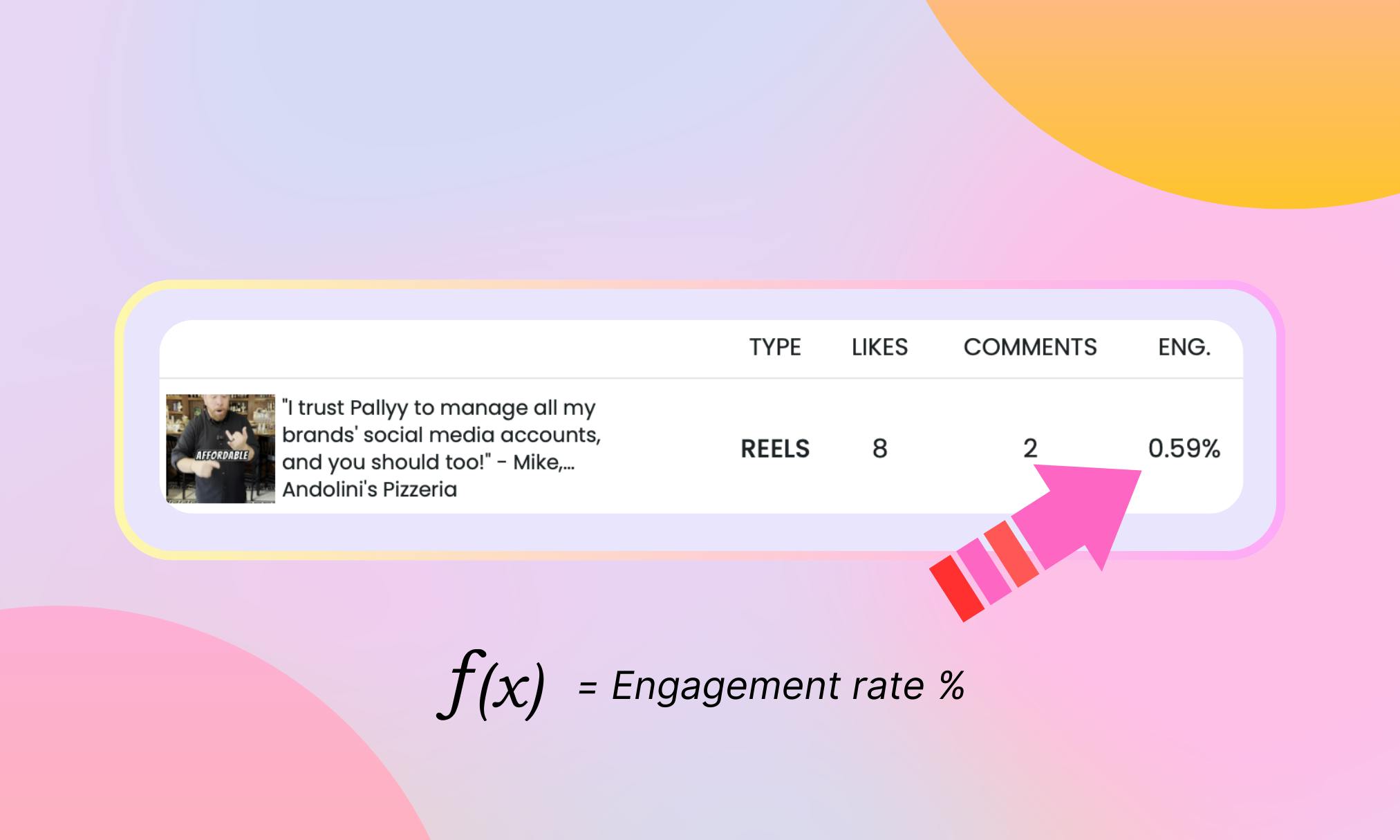What is engagement?
Essentially, engagement on social media is how your followers engage with your content - likes, comments, shares, etc.
What is an engagement rate?
Traditionally, a social media engagement rate was calculated by adding post interactions (likes, comments), dividing that figure by total followers and then multiplying by 100 to calculate as a percentage.
However, there seems to be a growing trend to instead use ‘post reach’ instead of 'total followers', which of course is going to increase the resulting engagement rate.
How to calculate engagement rate.

If you want to calculate the engagement rate for a particular post:
Interactions (Likes + comments) / followers x 100
This can be useful for an important standalone post, perhaps a launch post for a new product, or an important announcement.
If you want to calculate engagement rate for a particular time frame:
Interactions for all posts in that time period (Likes + comments) / the number of posts
Then divide that number by follower count and multiply by 100
This can be useful to track how well a campaign performed, across multiple posts.
Or your engagement by time period - whether it be a quarterly, 6 month or 12 month period. You can compare to previous periods to track how your content and social media strategy performs overall, or how different campaigns performed and which resonated the most.
Can I automatically track engagement?
Yes, you can. You can save yourself time and by using a tool that automatically tracks engagement.
If you want to automatically track your engagement rate across different social media platforms, try out Pally for free now.
How do you compare to industry benchmarks?
This will differ across social platforms and industries.
The best way to see where you sit is to track your own engagement and then compare to other key players in your industry.
There are plenty of tools that allow you to track competitors, including Pally.
It's also important to track your engagement over time, as an indication of how successful your content is, and how much it resonates with your followers.
You can take those learnings and ensure future content performs well.
Using a tool like Pallyy allows you to easily track and compare content and share reports with your team.
Is engagement rate important?
Your engagement rate is an indication of what your followers think of your content - and can show you what they like and don't like.
You can use these learnings to adjust your strategy to give your followers more of what they want.
The more you give your followers what they want, the more engagement you'll get.
So yes, engagement rate is important to consider in your overall marketing strategy. The power of stats like this is not to be underestimated.
Conclusion
Of course there are other important components to consider when looking at your engagement - like tracking engagement off the platform (using a link shortener), how active are you on each platform and how much you engage with your customers, among other factors.
Analysing engagement rates should be part of your overall strategy and consideration when planning future content.
Using tools like Pally makes this really easy, and you can export and share reports with your team or client.
